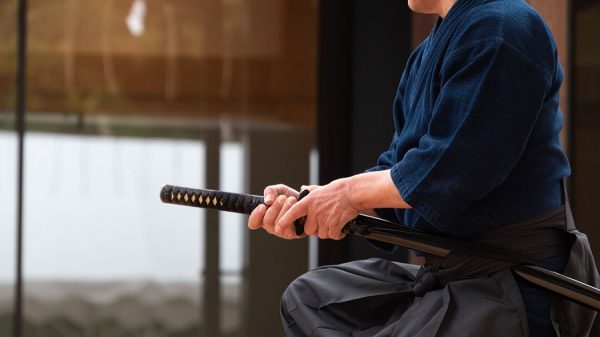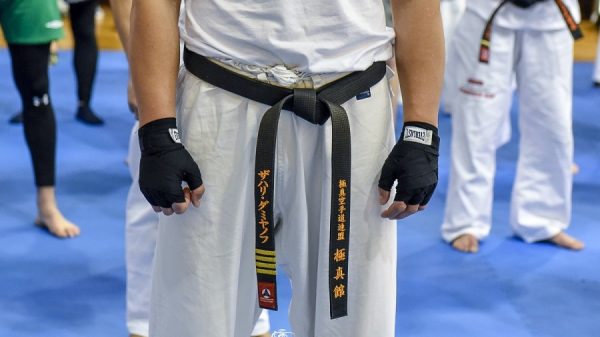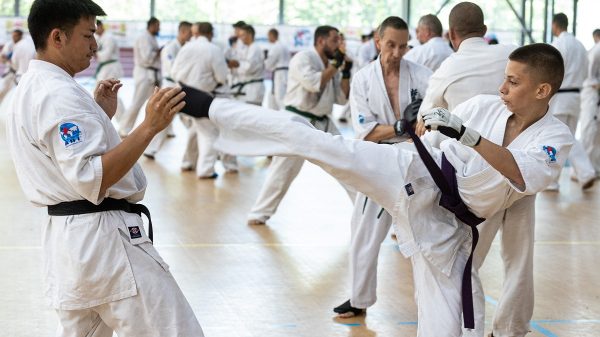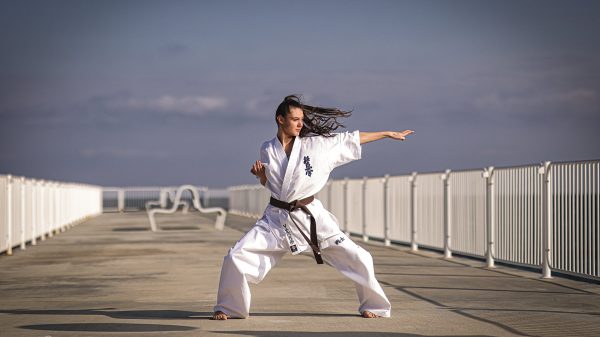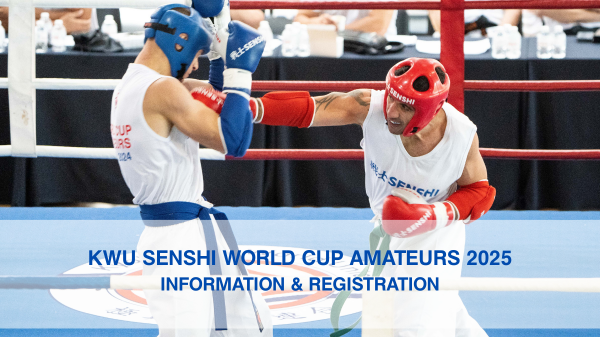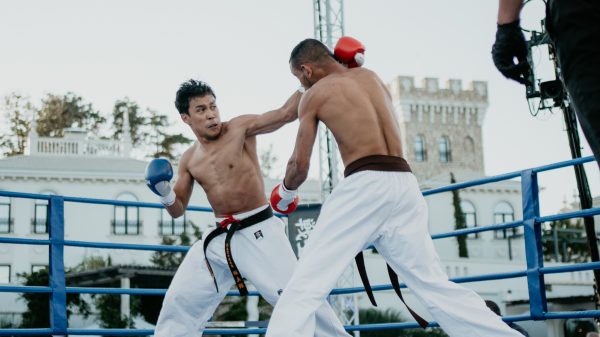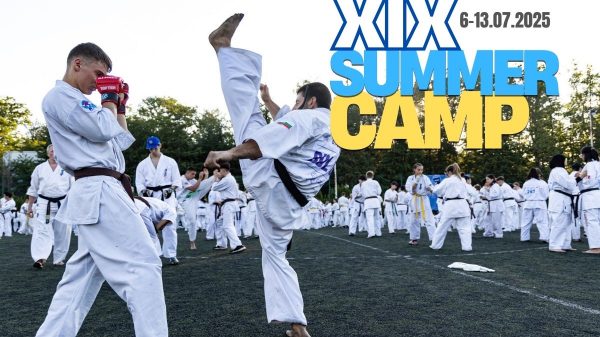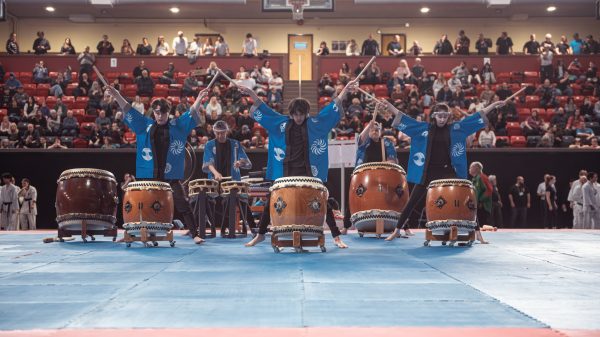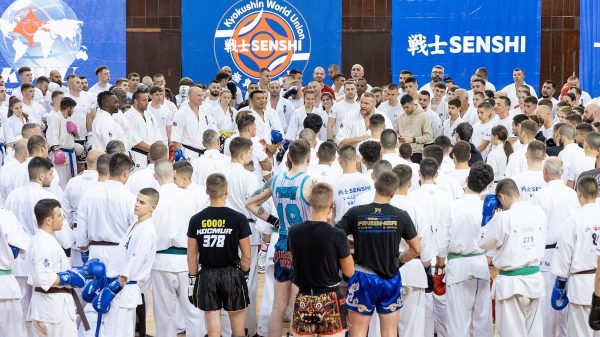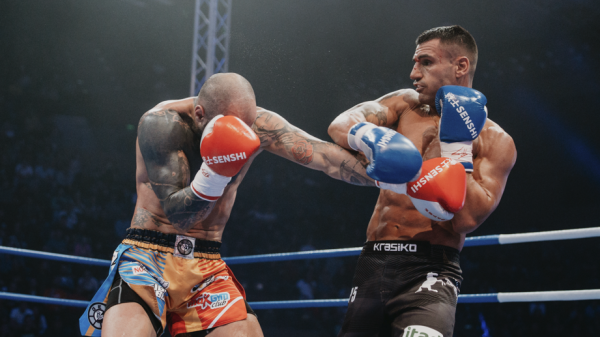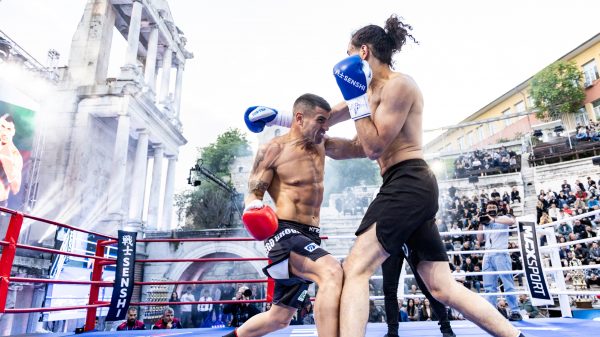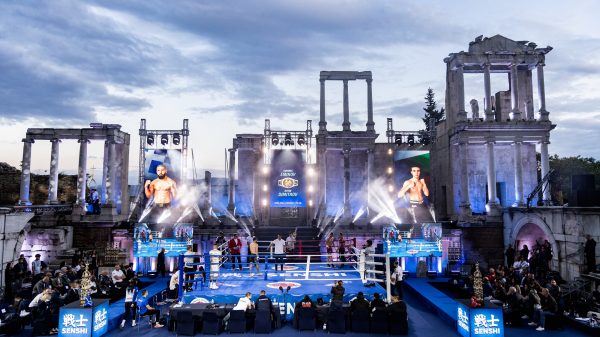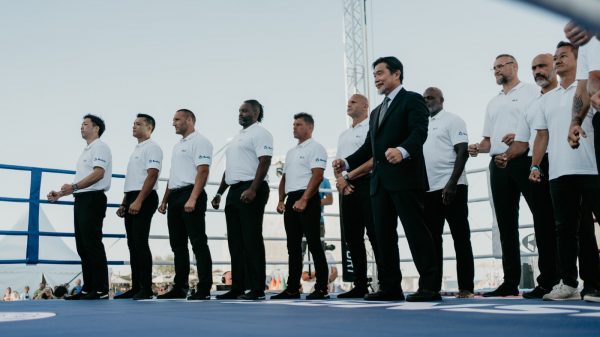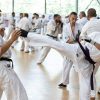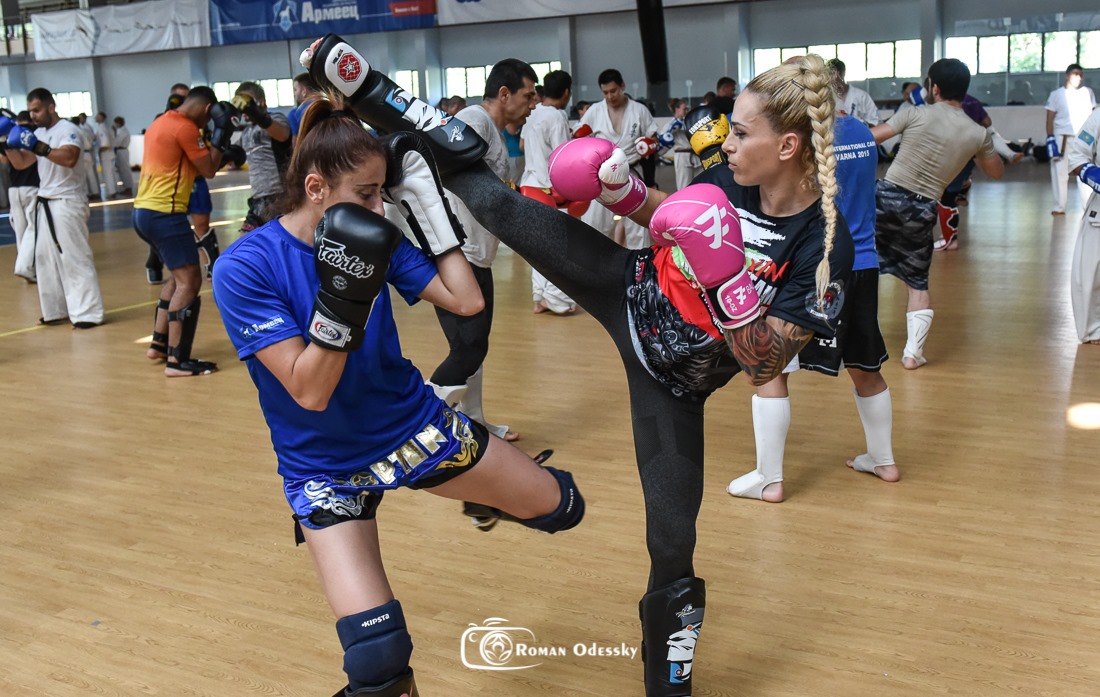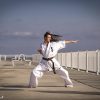What’s the difference between a fighter and a martial artist?
I want to avoid a frustrating back and forth based on semantics. Instead, I want to explore the difference between these two labels by looking a bit deeper and examining what each might mean for the bigger picture of a person’s life.
On the surface, a fighter is someone who fights and a martial artist is someone who practices martial arts. What else is there to it?
What else distinguishes these two identities from one another? Also, which one are you – a fighter, or a martial artist?
The Main Difference: Fighter vs Martial Artist
Georges St-Pierre is a legendary mixed martial arts champion who has played an enormous role in popularizing the sport around the world.
This is what one of the greatest combat athletes of all time has to say about the difference between a fighter and a martial artist:
“There is a difference between a fighter and a martial artist. A fighter is training for a purpose, he has a fight. I am a martial artist. I don’t train for a fight. I train for myself. I am training all the time. I am training for perfection. But I will never reach perfection.”
Goal-Setting
A fighter has a date in mind, while a martial artist has a lifetime in mind.
Sure, a martial artist might also be getting ready for a competition, but that doesn’t necessarily dictate their training regimen year-round.
A martial artist is likely to continue to train for years after their competitive career is over. At that, a martial artist can train for years and not have a competitive career at all. In this sense, it is clear to see how martial arts is a lifestyle – a journey and not a destination.
One way this difference might manifest is through emphasizing different types of goals.
Outcome Goals
This is something like winning a match/fight, winning a tournament, receiving a belt promotion. This is what will happen in the future, and is largely out of one’s control.
Process Goals
These are the smaller elements of performance that are in fact very much under one’s control. This could be the amount of effort exerted and time spent training, one’s attitude or demeanor, or the actions one takes during a match/fight, such as avoiding a certain position or continually executing a specific technique.
Process goals are the building blocks needed to achieve outcome goals. It’s not necessarily bad to have outcome goals, but martial artists certainly appear to be more geared towards setting process goals to guide their behavior.
What’s the biggest difference between process goals and outcome goals?
One of the biggest differences between process goals and outcome goals is that process goals are largely internal, and under the control of the individual, whereas outcome goals are largely external, and are much more difficult to control.
Sources of Motivation
A fighter is driven to win, while a martial artist is driven to be.
A fighter competes to achieve a specific outcome. The focus is on the result, and the source of the motivation is for the most part extrinsic, or external.
On the contrary, a martial artist is more likely to compete just for the sake of competition, or for reasons related more so to personal development.
Although a martial artist likely also concerned with winning to a certain extent, the majority of the focus is on attitude, behavior, and the process that leads to victory. In this case, the source of motivation is intrinsic, or internal.
A martial artist is chasing perfection even though they understand that perfection is unattainable. Their finish line is constantly moving further into the distance.
A true martial artist trains for the sake of the art, not for an outcome or for any other external reason.
Takeaways
Of course, it’s possible that some fighters are also intrinsically motivated and embrace the long-term lifestyle of their craft. But I think that the exaggeration of these terms is important in order to consider the benefits and takeaways from practicing martial arts and to see the terms as representing two different ends of a spectrum.
Martial arts promote holistic health and well-being. This means that balance is a priority – not specificity – and that all aspects of one’s life are to be considered when it comes to well-being and happiness.
As a fighter, everything you do in your life affects your fighting.
The difference is that, as a martial artist, everything in your life is affected by your practicing martial arts.
__________________
Enjoy reading this article? Follow him on social media for more content like this! Instagram @evanbjj, Twitter @evan_writing.


